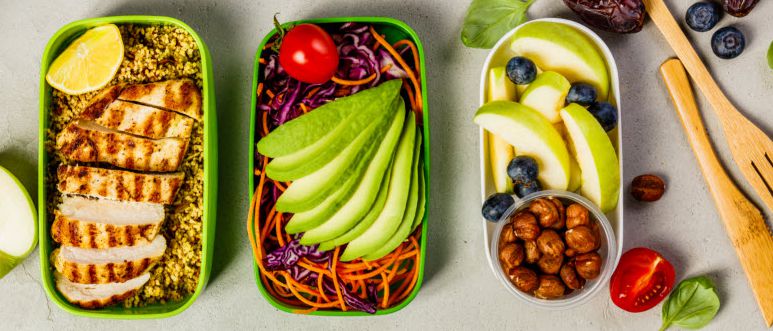Dietitian’s advice on changing nutritional requirements: What to feed your children at different stages
While most parents and caregivers understand the importance of nutrient-enriched food for a growing child, many don’t realise that there are changing nutritional requirements at each age level. Mbali Mapholi, has provided an easy guide on what foods and beverages caregivers should be giving their children, depending on their ages.
“Optimal nourishment is a key component of children’s growth and development, building a healthy immune system and reducing the risk of chronic diseases later in life,” explained Mbali “Their nutritional needs change with each age, which means their daily food intake needs to change to match that. Nutrients are grouped as micronutrients, which are nutrients needed in smaller quantities like vitamins and minerals, while macronutrients are nutrients needed in larger quantities and contribute directly to daily energy levels such as carbohydrates, protein and fat.”
Age-by-age nutrition guidelines
- Infants (birth to six months)
Infants experience massive growth and development in the first six months of life, including the development of the digestive system and visual development. From four to six months, babies are ready to start solids to complement breastfeeding or formula, although breast milk and formula remain the primary source of nutrition. Nutritional requirements:
- Exclusive breast milk is encouraged for the first six months of life.
- Exclusively breastfed babies or partially breastfed babies (receiving less than one litre of artificial milk a day) may need additional vitamin D supplementation as breast milk lacks vitamin D – 400 IU vitamin D supplementation (liquid form) is recommended per day, but speak to your health professional for direct advice.
- Babies (six to 12 months)
This is a time of more physical growth and development for your child, including brain development and teething. Nutritional requirements:
- Increased need for iron and zinc which can be found in puréed meats, grains, fortified cereals and porridges.
- Babies should be offered small amounts of nutrient-enriched foods, introducing them one food item at a time.
- Integrate legumes and pulses (beans, chickpeas, lentils) into meals to bulk up and increase the nutritional value.
- No seasoning is needed at this age at all and eggs should not be added raw but rather cooked thoroughly to prevent bacterial contamination.
- Babies below the age of one year should not be offered cow’s milk. However, fluid intake will increase in the form of primarily breast milk, clean water, or unsweetened Rooibos as a substitute for water.
- Meals could include maize-meal porridge with margarine; mashed potato with puréed chicken livers and butternut purée; fortified infant cereal.
- Toddlers (one to three years)
There is more height growth and increased socialising during this phase, with more food variety required for the daily diet. Nutritional requirements:
- More grains, eggs, legumes, meats, starches, vegetables, fruits, nuts and seeds (depending on allergies).
- Seasoning may be added at this age but keep salt as low as possible. Use herbs or natural seasonings to flavour food for mild tasting.
- Fluid requirements increase as they grow bigger at this age. To meet fluid needs, breast milk can continue but there is no need for infant formula from 12 months.
- Pasteurised cow’s milk may be included from 12 months as part of the child’s daily diet.
- Vitamin C-enriched Rooibos is beneficial for hydration and to protect toddlers starting day care from common colds and flu.
- Pre-schoolers (four to eight years)
There are increased nutritional needs for the growing body and children at this age are more susceptible to picky eating. The body will adjust to the day care environment as more germs are encountered. The child’s fluid intake will increase significantly – especially on hot days – but beware of sugar-laden drinks which can affect appetite, cause tooth decay, and contribute to childhood obesity. This is a good time to involve children in food making, trying out healthy recipes (such as this delicious healthy biscuit recipe below). Nutritional requirements:
- The intake of different food groups will almost have doubled by this time which means more servings of grains, legumes, vegetables and fruits, meat, eggs, seeds and nuts.
- Children need plenty of clean, safe water. Rooibos can also be served hot or cold as a healthy and delicious way to increase fluid intake. It has a variety of flavours, which are naturally sugar-free and caffeine-free. This can also be added to the lunchbox.
- Pre-teens (nine to 11 years)
The pre-teen years are a time of rapid growth and development as the body gets ready for the teenage years. This is a time of increased independence in making meals, snacks and drinks. With the larger body size and increased physical activity, the body needs more fluids at this age. Nutritional requirements:
- The intake of carbohydrates, proteins, fats and calories increases significantly at this age.
- It’s important to choose more lean protein sources, whole grains, high-fibre starches, vegetables, fruits and dairy.
- Encourage healthy snacks throughout the day to meet increased nutritional needs.
It’s recommended that children have three daily dairy servings to support higher calcium needs.

“Ensuring our children are enjoying a healthy, balanced diet is a daily duty for every parent and we want to ensure we’re doing everything we can to provide the best support,” explained Candice Sessions, Laager Marketing Manager. “We believe the valuable nutritional information supplied by Mbali, our Laager Tea4Kidz partner dietitian, will go a long way in helping caregivers achieve these nutritional goals. We’ve also shared a really wonderful biscuit recipe from Mbali to help you get into healthy habits this year!”

Mbali Mapholi is a registered dietitian and nutrition expert. She is passionate about helping people achieve optimal health and wellness through personalised nutrition plans and lifestyle modifications. As the co-host of the Dietitian Frequency podcast, she has a platform to share her insights and expertise with a global audience and engage with other professionals in the field. Through her consulting work with food and drinks brands, she is able to provide strategic guidance on product development, marketing, and regulatory compliance, while also ensuring that nutritional considerations are taken into account. She partners with organisations to design and implement initiatives that promote health and productivity in the workplace.
www.urbandietitians.co.za


